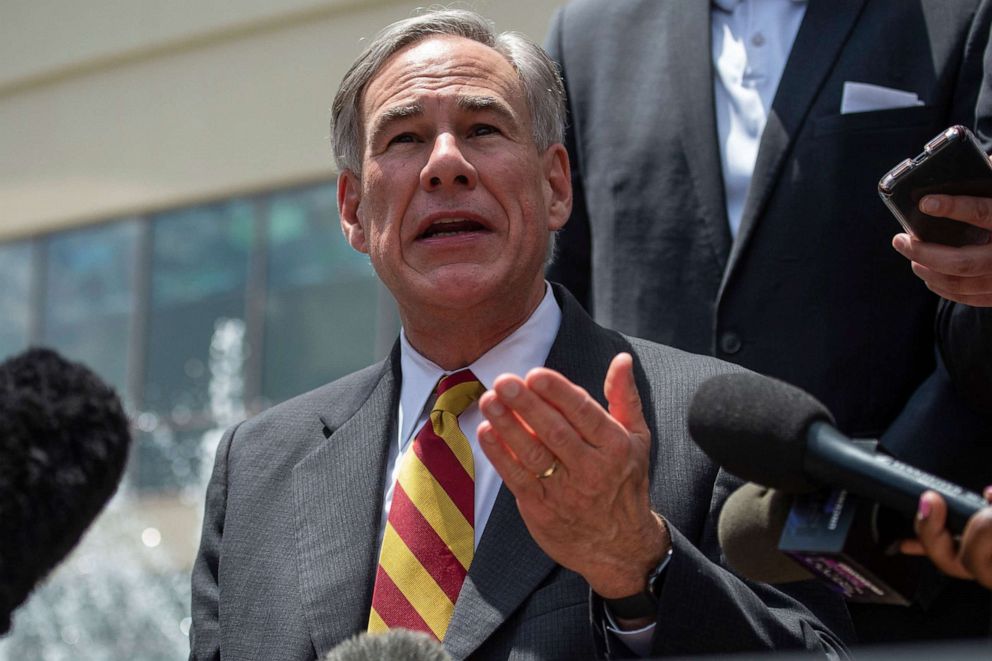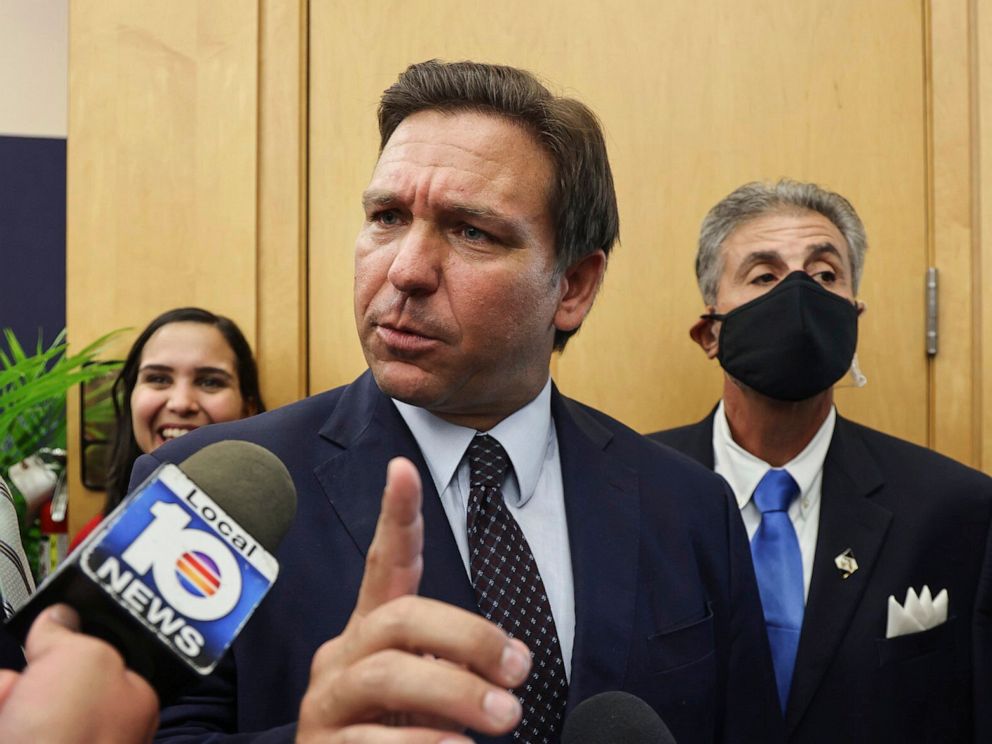Republican governors become leading figures in states’ push for social media reform
A new culture war emerges ahead of upcoming campaign cycles.
As 2024 presidential optics continue to loom over the current political landscape, at least two high-profile Republican governors and potential presidential hopefuls are at the forefront of an unfolding culture war aimed at social media companies.
The governors of two Republican strongholds, Florida Gov. Ron DeSantis and Texas Gov. Greg Abbott, were at the center of the push for online policy reform this week, as each of their states grappled with the implementation of legislation dealing with platforms' content moderation. Both governors had been critical of social media platforms' decisions to suspend former President Donald Trump following the Jan. 6 insurrection and allege broader censorship of conservative viewpoints online in their home states.
In Texas, the waning days of the state's legislative session presented an imminent deadline for the passage of Senate Bill 12, which aimed to prohibit social media platforms from banning a user based on their viewpoint or their geographic location in the state. As defined by the bill, a "user" can be a Texas resident, someone who does business in the state or someone who more broadly shares or receives content in Texas.

Late Tuesday, the bill failed after missing a critical deadline for advancement in the House. Despite requests from Lt. Gov. Dan Patrick and the conservative Texas House Freedom Caucus for Abbott to convene a special session of the state legislature, the governor appeared to take a measured approach.
"Some are trying to end the game before the time clock has run out. There's still time remaining for the House & Senate to work together to get important conservative legislation to my desk. Both chambers need to be spending every minute of every day to accomplish that mission," Abbott said in a tweet on Wednesday.
Abbott previously voiced support for the legislation in March while alleging that social media companies are "in the position where they're choosing which viewpoints are going to be allowed to be presented."
As outlined, SB12 appeared to take aim at tech giants by designating its application to companies that have at least 100 million users per month. Facebook, Twitter and YouTube -- all of which banned Trump following the Capitol riot -- each have billions of monthly users, while platforms like Gab and Parler have tens of millions fewer users than the designated amount.
"Silencing conservative views is un-American, it's un-Texan and it's about to be illegal in Texas," Abbott said in a tweet at the time of the bill's initial introduction in March.
The fate of the legislation in Texas may still be in question, but this week in Florida, a similar bill made it across the finish line. On Monday, DeSantis made his state the first in the nation to enact a law that he says will "hold big tech accountable so that everyday people who use their platform have the ability to fight back."
"Today, Floridians are being guaranteed protection against the Silicon Valley power grab on speech, thought, and content. We the people are standing up to tech totalitarianism with the signing of Florida's Big Tech Bill," DeSantis tweeted at the time.
The bill, which takes effect in July, aims to instill oversight by punishing social media companies for their decisions to moderate content published on their platforms. While the legislation includes provisions that allow Floridians to sue social media companies over perceived unfair treatment, it also aims to financially penalize platforms for removing political candidates.

According to the legislation, a platform may not remove a known candidate for office from the time that candidate qualifies to run for office through the election date or until they withdraw their candidacy. If a candidate is removed during that timeline, "the social media platform may be fined $250,000 per day for a candidate for statewide office and $25,000 per day for a candidate for other offices."
The law also appears to make an exemption for some multi-platform media companies, including ABC's parent company, Disney, by excluding any "company that owns and operates a theme park or entertainment complex" in the state.
At the time of the bill's signing, DeSantis, a vocal Trump ally, pushed back on a question about whether the law was being implemented for the former president who now resides in Florida.
"The bill is for everyday Floridians," DeSantis said. "I do think that's another issue that has been brought to bear -- when you deplatform the president of the United States but you let Ayatollah Khomeini talk about killing Jews, that is wrong."
It remains to be seen whether such measures are able to withstand potential future legal challenges.
NetChoice, a trade association whose members include Facebook and Twitter, argues that SB12 should not be enacted in Texas because it violates the First Amendment by regulating free speech through the requirement imposed on private companies "to carry content that is against its policies or preferences."
The group also said, if enacted, the legislation would expose platforms "to lawsuits for removing harmful content" and would make it difficult to block unwanted spam messages.
In a statement, Carl Szabo, the vice president and general counsel at NetChoice, echoed similar concerns about Florida's newly minted law.
"The First Amendment prohibits the government from compelling or controlling speech on private websites. If this law could somehow be enforced, it would allow lawful but awful user posts including pornography, violence, and hate speech that will make it harder for families to safely navigate online," Szabo said.
Despite any potential legal hurdles, the issue of social media bans continues to be a messaging focus for Trump allies, as well as the former president himself as he continues to mull over renewed presidential prospects.
In a recent statement addressing media viewership, Trump alleged being "banned" by "Big Tech" before indicating a possible future "choice or establishment of a platform" of his own.




